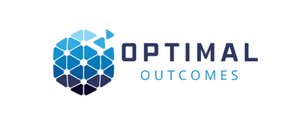Tel: 650-980-4870
Blog

Frameworks
Cybersecurity is a critical aspect of protecting digital assets and information from unauthorized access, use, disclosure, disruption, modification, or destruction. To establish a comprehensive approach to cybersecurity, various frameworks have been developed to provide guidelines, best practices, and methodologies. These frameworks help organizations build effective cybersecurity strategies and implement measures to mitigate cyber threats. Some prominent cybersecurity frameworks include:
NIST Cybersecurity Framework (CSF): Developed by the National Institute of Standards and Technology (NIST), this framework provides a risk-based approach to managing cybersecurity risk. It consists of five core functions: Identify, Protect, Detect, Respond, and Recover. The CSF can be adapted to various sectors and organizations of different sizes.
ISO/IEC 27001: This is an internationally recognized standard that specifies requirements for establishing, implementing, maintaining, and continually improving an Information Security Management System (ISMS). It focuses on risk management and aims to ensure the confidentiality, integrity, and availability of information assets.
CIS Controls: The Center for Internet Security (CIS) provides a set of prioritized, actionable, and measurable best practices to enhance an organization's cybersecurity posture. The CIS Controls offer a roadmap for organizations to defend against prevalent cyber threats.
NIST Special Publication 800-53: This NIST publication provides a comprehensive catalog of security and privacy controls for federal information systems and organizations. It is widely used in government agencies and also serves as a reference for private sector organizations.
PCI DSS: The Payment Card Industry Data Security Standard (PCI DSS) is a set of security standards designed to protect credit card data during transactions. It applies to organizations that handle, process, or store credit card information.
HITRUST CSF: This framework is specific to the healthcare industry and provides a comprehensive and flexible approach to managing security and privacy compliance challenges.
COBIT (Control Objectives for Information and Related Technologies): Originally developed by ISACA, COBIT provides a governance and management framework for enterprise IT, including aspects related to cybersecurity.
MITRE ATT&CK: While not a traditional framework, MITRE ATT&CK is a knowledge base that outlines adversary tactics, techniques, and procedures (TTPs). It helps organizations understand and map potential threats and improve their detection and response capabilities.
OWASP (Open Web Application Security Project): Focused on web application security, OWASP provides guidelines and best practices for identifying and mitigating security vulnerabilities in web applications.
These frameworks serve as valuable resources for organizations to enhance their cybersecurity posture by implementing a structured and proactive approach to safeguarding their systems, data, and users from cyber threats. Organizations often tailor these frameworks to their specific needs, considering factors like industry, risk appetite, and the size of the organization.
Menu
Services
© Copyright 2023. Optimal Outcomes. All rights reserved.
